Know what to do: Preventing youth suicide
Scroll down to find out where to get help right now.
Suicide Prevention Ottawa is a group of partner organizations and individuals who are committed to the prevention of suicide in Ottawa. This Network is a demonstration of the collective commitment to sharing resources and expertise in the prevention and effective response towards the negative consequences and ripple effect of suicide in Ottawa. The Network is committed to the ongoing development of a collaborative approach in the prevention of suicide in Ottawa. The initial focus of the Network is to work together to prevent youth from taking their own life.
Suicide Prevention Ottawa includes the Youth Services Bureau, the Children’s Hospital of Eastern Ontario, The Royal Ottawa, Ottawa Public Health, as well as groups such as Bereaved Families of Ottawa and Parents’ Lifelines of Eastern Ontario (PLEO). Their members know the devastating loss and the long-term effects on families of losing a child or a teen to suicide.
Visit Suicide Prevention Ottawa for more.
The “Know What to Do” Guide
At a summit in February 2012, the Community Suicide Prevention Network launched a pocket guide called the Know What to Do Guide. Aimed at youth and family members, the guide outlines what signs to watch for, what to say and do, and where to get help in the Ottawa region. Recommendations included:
- Making mental health services easier to access by youth when they need help, such as the YSB’s innovative Youth Mental Health Walk-in Clinic
- Better coordination among emergency and crisis providers, so that the care provided to those who are suffering is more seamless.
- Engaging youth
- Helping parents navigate the system: the parents’ group PLEO and Crossroads Children’s Centre are working together to create a parent-to-parent service that will meet this need.
- Support to the bereaved (available from the Canadian Mental Health Association, Ottawa branch), who are themselves at greater risk
- Responsible media reporting: Guidelines for media
KNOW WHAT TO DO
Here are the practical guidelines the Network promotes to help create a safer environment for children, youth and anyone who is at risk. The Network’s Know What to Do guides are sponsored by Bell.
KNOW WHAT TO WATCH FOR
Mental health experts advise parents and others working with children and teens to watch for changes in behaviour. These can include:
- Changes in behaviours, friends, or normal activities
- Changes in physical health and/or hygiene
- Low energy, poor concentration
- Declining school performance
- Increased absenteeism
- Marked personality change
- Increased risky behaviour
- Prolonged negative mood or attitude
- Sudden positive mood after a long period of being ‘down’
- Preoccupation with appearance and/or body image
- Comments about feeling worthless, helpless, or hopeless
- Comments about suicide and/or dying
Teens in crisis may talk more easily to their peers than to adults. All kids and teens should be encouraged to speak up if they are concerned about a friend—to tell a trusted adult, whether their own parents, a friend’s parent or a teacher, guidance counsellor or coach.
KNOW WHAT TO SAY
So if a parent, teacher or friend is noticing these changes, what can they do? Sometimes it’s not easy talking to our kids.
- Say something! Don’t be afraid of sounding clumsy
- Be patient, compassionate, and non-judgmental
- Ask the person how they are feeling and if they are thinking of suicide
- If someone is suicidal, talking about suicide will not put them at greater risk
- Really listen. Give 100% of your attention
- Be sensitive, but direct
- Let the person know you are concerned, and give examples of why
- Example: “I’ve noticed that you’ve been not yourself lately, I’m concerned about you. Could we talk about it?”
KNOW WHAT TO DO
Youth and parents do not have to handle a crisis situation alone. Help is out there.
Crisis Lines in Ottawa and Eastern Ontario
YSB’s 24/7 Crisis Line
- For children, youth and families
- Within Ottawa 613-260-2360
- Outside Ottawa 1-877-377-7775 (toll-free)
- 24/7 Crisis Line (0 to 17 years)
Mental Health Crisis Line
- Within Ottawa 613-722-6914
- Outside Ottawa 1-866-996-0991 (toll-free)
- crisisline.ca (16 years and above)
Tel-Aide Outaouais
- Gatineau: 819-775-3223
- Ottawa: 613-741-6433
- Rural Outaouais: 1-800-567-9699 (toll-free)
If there is an emergency, call 911 or go to the hospital
- Call a local crisis line (even if you are not the person in crisis)
- Stay calm and listen
- Be sensitive to how the person is feeling
- Never swear secrecy
- If you have noticed warning signs, talk with the person about what you have observed
- Educate yourself on local services that can help
- For students, contact school principal and school counsellor
- Give the person the crisis line phone numbers above
- Don’t forget to take care of yourself – it’s especially important when supporting others!
Emergency services
The Regional Psychiatric Emergency Services for Children and Youth are located at the Children’s Hospital of Eastern Ontario (CHEO) Emergency Department, at 401 Smyth Rd. Any age can go to an emergency department of the Ottawa Hospital, the Montfort Hospital, or the Queensway-Carleton Hospital.
Other Suicide Prevention and Mental Health Resources
- Bereaved Families of Ottawa: bfo-ottawa.org
- Canadian Mental Health Association–Ottawa Branch: cmhaottawa.ca
- Centre Psychosocial: centrepsychosocial.ca
- Crossroads Children’s Centre: crossroadschildren.ca
- Distress Centre – 24-hour line 613-238-3311: dcottawa.on.ca
- Ontario Centre of Excellence for Child and Youth Mental Health: excellenceforchildandyouth.ca
- Ottawa Inuit Children’s Centre: ottawainuitchildrens.com
- Ottawa Suicide Prevention Coalition: ottawasuicideprevention.com
- Parents’ Lifelines of Eastern Ontario: pleo.on.ca
- Student Support Leadership Initiative: excellenceforchildandyouth.ca/about-mental-health/school-based/ssli
- Wabano Centre for Aboriginal Health: wabano.com
